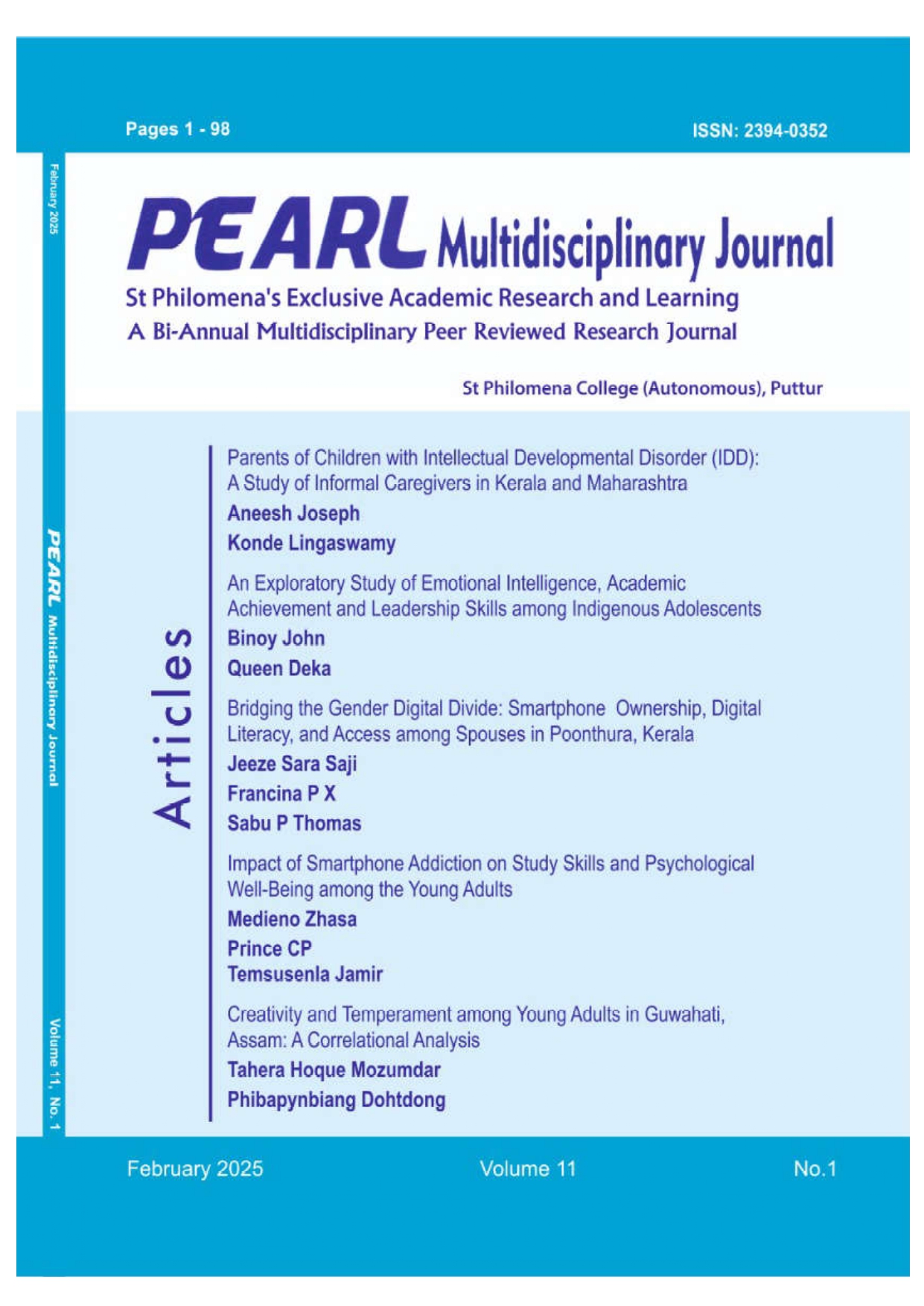An Exploratory Study of Emotional Intelligence, Academic Achievement and Leadership Skills among Indigenous Adolescents
Binoy John
Research Scholar, Department of Psychology, Royal Global University Guwahati
Queen Deka
Assistant Professor, Department of Psychology, Royal Global University Guwahati
Keywords: Emotional Intelligence, Academic Achievement, Leadership Skills, Indigenous Adolescents
Abstract
Tripura consists of 19 major tribal communities and non tribal
population named Bengalis. In the census of 2011, the tribal community
consists of 31.05 % and 69.95 % nontribal of the state population. In
this context how the nexus of Emotional intelligence, Academic
achievement and leadership skills play a vital role among the indigenous
adolescents of Tripura. The main purpose of the research is to examine
and measure the emotional intelligence, academic achievement and
leadership skills of Indigenous adolescents, a critical stage of one’s life
span. The study also explores the gender differences in Emotional
Intelligence, Academic Achievements and Leadership Skills between male
and female students. The study adopted a quantitative approach based
on correlational research design and used a purposive random mixed
sampling technique. The sample consists of 90 (40 females and 50
males) higher secondary school leader students of Five English medium
schools in the West Tripura district. The data is collected through the
Emotional Intelligence Test (EIT) of Ekta Sharma (2011), measuring Emotional intelligence and a standardized ‘leadership skill questionnaire’ for leadership skills and marks percentage to measure the academic achievements for the study. Descriptive statistics of mean and standard deviation, along with inferential statistics of t test and correlation, were performed. The study finds that a high percentage of Indigenous students are very average in their measure of emotional intelligence and academic achievements, but high leadership skills are shown. The result shows no significant correlation among the variables. There is no significant difference between males and females concerning Emotional intelligence, academic achievement and leadership skills in the study.


